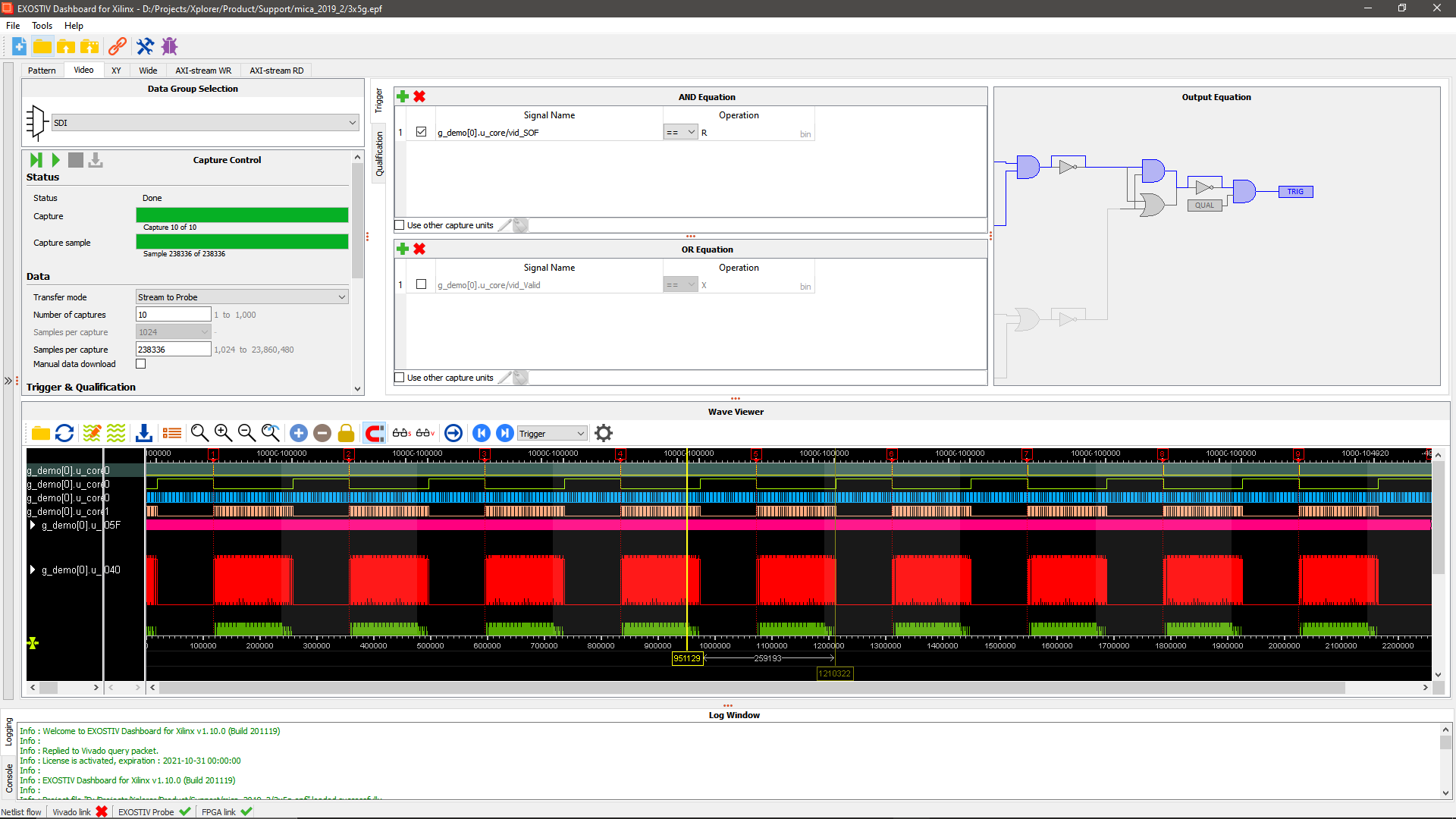EXOSTIV Dashboard
EXOSTIV Dashboard software (Windows, Linux & MacOS) provides the tools to insert EXOSTIV IP into the target FPGA and analyze trace data captured from FPGA at runtime.
EXOSTIV Dashboard is composed of the Core Inserter and the Analyzer.
EXOSTIV Core Inserter is used to setup, synthesize and optionally automatically insert EXOSTIV IP.
EXOSTIV Analyzer is used after the target FPGA is loaded with a design instrumented with EXOSTIV IP to capture data from the FPGA under test running on a board.

EXOSTIV Core Inserter: set up and insert IP
EXOSTIV Analyzer: capture and analyze data
EXOSTIV Core Inserter is used to set up EXOSTIV IP and synthesize it with the help of the FPGA vendor tool. EXOSTIV IP is inserted into the target design at RTL or at netlist level.
In the netlist flow, EXOSTIV Core Inserter establishes a communication with the FPGA vendor tool. This enables the extraction of the hierarchy, nodes and clocks, from the target FPGA database. Once EXOSTIV IP resources and connections with the target FPGA nodes are defined, the Core Inserter adds EXOSTIV IP to the target FPGA design and requests the FPGA vendor tool to run implementation (place & route).
In the RTL flow, EXOSTIV Core Inserter uses the FPGA vendor tool to configure the parameters and resources of EXOSTIV IP and synthesize it, together with pinout & timing constraints, as well as RTL-level instantiation template.
Once the instrumented FPGA programming file is available and loaded into the target FPGA, EXOSTIV Analyzer can use EXOSTIV IP to capture data from the target FPGA and upload it to the PC for visualization (MYRIAD waveform viewer) and analysis.




